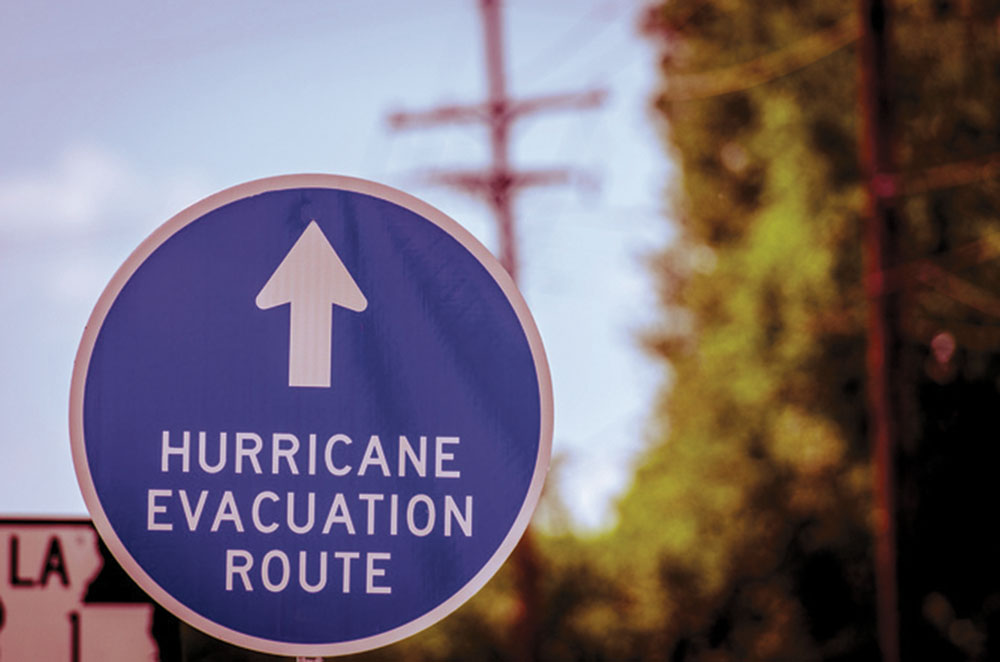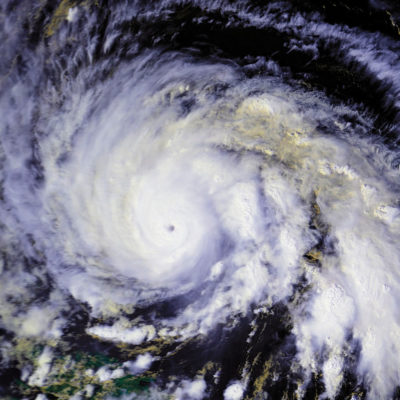 States on the lower East Coast have endured Hurricane Irma, while bracing for two more storms making their way in, while hundreds of thousands in the Gulf continue to grapple with the devastation caused by Hurricane Harvey.
States on the lower East Coast have endured Hurricane Irma, while bracing for two more storms making their way in, while hundreds of thousands in the Gulf continue to grapple with the devastation caused by Hurricane Harvey.
September is National Emergency Preparedness Month and National Grid is encouraging its customers to take action and be prepared, as severe storms continue to disrupt daily life and put more lives at risk.
“This month in particular and as we approach the fifth anniversary and remember the devastation of Superstorm Sandy, we’re reminding our customers about the importance of planning ahead,” said Ken Daly, president of National Grid in New York. “Safety is our number one priority, and we want to ensure our customers can properly prepare and take care of themselves, their families, and their communities. Preparedness is critical to the well-being of our customers and it helps our crews restore service quickly and safely.”
National Grid also continuously maintains and strengthens the reliability of its gas systems. The company is investing heavily in its gas infrastructure to modernize the network, ensure reliability, safety and to connect customers to the energy they need to heat their homes and run their businesses in the most economic manner.
In addition to emergency preparedness efforts and to work quickly and safely to restore service in an outage, National Grid partners closely with the American Red Cross to help the communities it serves prepare for and recover from natural disasters. With support from National Grid and other companies, the American Red Cross Annual Disaster Giving Program is able to respond to nearly 70,000 disasters each year.
 National Grid offers the following tips to help customers prepare for emergencies:
National Grid offers the following tips to help customers prepare for emergencies:
Build An Emergency Supply Kit
Water, nonperishable food, first aid materials, prescriptions, flashlight, batteries and a battery-powered radio are critical items to have in an emergency supply toolkit. A well thought-out emergency plan and a fully stocked toolkit could mean the difference between life and death.
Plan Your Locations
Emergencies and disasters occur without warning, making it important to have a plan and the supplies you will need for the different locations you and your family frequent beyond your home: work, school, vehicles, places of worship, for example, along with shopping areas and entertainment/sports sites such as theaters, ball fields and arenas. How will you get to a safe place? How will you contact one another? How will you get back together, if separated? These are all important questions to consider when creating your plan.
Anticipate Your Risks
Think about where you live and identify the hazards that have happened or could occur in your area. Residents in areas that usually receive significant snowfall might plan more for snowstorms, while residents who live along the coast may be more affected by hurricanes. Depending upon the nature of the emergency and your circumstances, one of the first important decisions to make is whether to stay where you are or evacuate. You should understand and plan for both possibilities. No matter where you live, make sure you plan accordingly.
Know Your Community’s Plan
Find out from local government how it communicates with residents in an emergency. This could be in the form of radio/TV broadcasts, telephone, door-to-door notifications or a community siren. Get informed now so you can stay informed when it counts.
Stay Safe If You Experience Flooding
• Flood waters can permanently damage gas equipment. Even if the equipment dries out, contaminants can affect electronics and moving parts. Corrosion is likely and is often hidden where it cannot be seen. This can lead to failures and can cause fires, even if the equipment appears intact and functions after drying out.
• Do not turn off the gas meter even in the event of an evacuation. The gas meter should be left on to maintain proper pressure in the gas piping within the house and to prevent water from entering the lines should flooding occur. Most gas appliances have safety valves that shut off the flow of gas automatically if the pilot light goes out.
• If your appliances have been in contact with water, please contact a licensed plumbing or heating contractor to make sure the appliances are safe to operate.
If You Suspect A Natural Gas Leak
• Evacuate your home and move to a safe area.
• Call 911 or National Grid’s gas emergency numbers from a safe location: Long Island and the Rockaway peninsula: 800-490-0045 and Metro New York: 718-643-4050.
• These are dedicated gas emergency phone numbers. National Grid has crews on call 24 hours/7 days a week who will respond immediately. When calling, provide the exact location, including cross streets.
• Do not return to your home until National Grid tells you it is safe.
• Do not smoke, light matches or do anything to create a flame.
• Do not touch any light switches or electrical equipment and do not pull any plugs from outlets. These items may produce a spark that might ignite the gas and cause an explosion.
• Do not assume someone else will report the condition.
If You Suspect A CO Leak
• If you suspect a carbon monoxide leak in your home, go outside immediately and call 911.
• Indicators of high levels of carbon monoxide in the home may include: extremely stuffy, stale air; water condensation dripping on the inside of windows.
• Symptoms of carbon monoxide exposure: flu-like symptoms such as dizziness, headaches, sleepiness, nausea, fluttering of the heart and loss of muscle control.
Stay Connected To National Grid Social Media
Customers can follow National Grid on Twitter @nationalgridus and connect with National Grid on Facebook for company information or news specific to their service area.
Take Advantage Of Apps
The American Red Cross and the Federal Emergency Management Association are among many organizations that offer downloadable mobile apps for first aid, shelter locations and disaster assistance.
Get Involved
National Grid encourages customers to find volunteer opportunities to support community readiness. Taking an active role in community planning and preparation, supporting relief efforts and donating funds or goods when you are able can help your neighbors in times of disaster.
—Submitted by National Grid


















